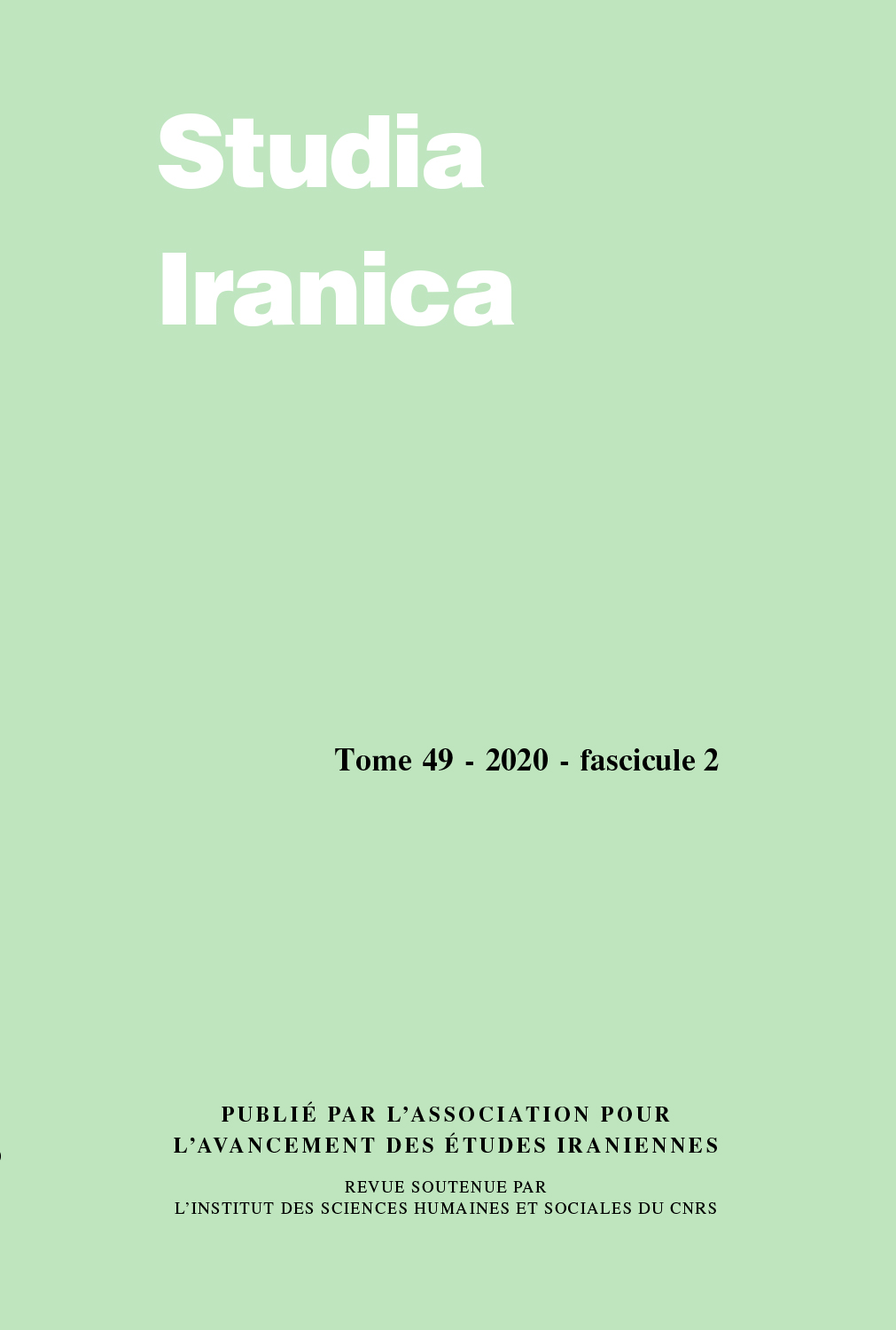 previous article in this issue previous article in this issue | next article in this issue  |

Preview first page |
Document Details : Title: Ancient Iranian civil legislation. A Legal section of the Pahlavi Videvdad Author(s): MOAZAMI, Mahnaz Journal: Studia Iranica Volume: 30 Issue: 2 Date: 2001 Pages: 199-224 DOI: 10.2143/SI.30.2.285 Abstract : Chapter 4 of the Vidêvdâd treats the oldest Zoroastrian civil and penal legislation. This chapter is the only one in the Vidêvdâd that deals strictly with legal objects: it traits the law of contract and assault. The contracts are divided into two classes, according to their purpose and according to the value of their object. The distinctions are as follows: the one of word (pad-gôwishn); the one concluded by hand (dast-musht); the size of a sheep or a goat (pah-masây); the size of an ox or a horse (stôr-masây); the size of a man (wîr-masây); and the size of a land (deh-masây). Le chapitre quatre du Vidêvdâd traite le plus ancien code civil et pénal de la religion zoroastrienne. Ce chapitre est le seul du Vidêvdâd qui s'occupe strictement de la législation : il traite des contrats et des attentats sur les personnes. Les contrats sont divisés en deux catégories, selon leur but ou selon la valeur de leur objet. Les distinctions sont les suivantes : le contrat de parole (pad-gôwishn) ; le contrat de main (dast-musht) ; le contrat pour valeur d'un mouton ou d'une chèvre (pah-masây) ; le contrat pour valeur d'un bœuf ou d'un cheval (stôr-masây) ; le contrat pour valeur d'homme (wîr-masây) ; et le contrat pour valeur de terre (deh-masây). |
|


